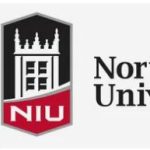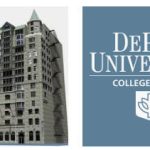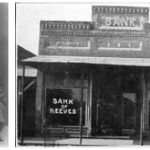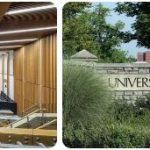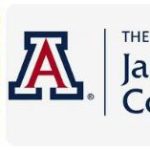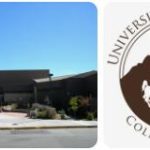The University of Illinois–Urbana-Champaign College of Law was established in 1897, making it the oldest public law school in the state of Illinois. It was founded at a time when public universities were just beginning to offer legal instruction. The school’s first dean was William Bross Lloyd, who had previously served as a professor at Northwestern University’s law school. He was appointed by the Board of Trustees as the first Dean of Law and brought with him a commitment to building a strong faculty and curriculum. Over the years, the college has grown significantly, expanding its faculty, student body, and curriculum. The college now offers over 200 courses in various areas of law including business law, criminal law, environmental law, and intellectual property. Additionally, students can pursue dual degrees in any number of disciplines such as accounting or international relations. The college has also developed several clinical programs which give students real-world experience in areas such as immigration and social justice. Today it is ranked among the top 30 public law schools by U.S News & World Report and is also highly respected for its strong faculty and alumni network.
University of Illinois–Urbana-Champaign College of Law is located in the state of Illinois. As one of the leading law programs, University of Illinois–Urbana-Champaign College of Law has a high average LSAT score of 160-167 when recruiting new students. As a return, the median starting salary for law graduates reaches $145,000 per year. See the following table for detailed admissions information and career profiles of University of Illinois–Urbana-Champaign College of Law.
Admissions: University of Illinois–Urbana-Champaign
The University of Illinois–Urbana-Champaign College of Law is one of the most prestigious law schools in the nation. In 2019, the school had an overall acceptance rate of 23.3%. This means that out of all applicants, only 23.3% were accepted into the program. The median LSAT score for accepted students was 164, while the median GPA was 3.68. Additionally, the school reported that 48% of admitted students were female and 52% were male. The college also offers a variety of programs to meet students’ interests, from business law to international law and more. In addition to traditional courses, students can take advantage of clinics and externships for hands-on experience in their chosen field. The college has also established a number of dual degree programs for those interested in interdisciplinary studies such as Law & Economics or Law & Business Administration. Finally, the college has many resources available to help students succeed in their academic and professional pursuits such as career counseling services, mentorship programs and more.
| Fall 2019 Admissions and Enrollment Statistics | |
|---|---|
| Total number of full- and part-time applicants | 3,516 |
| Total number of full- and part-time acceptances | 1,031 |
| Overall acceptance rate | 29.3% |
| Total number of full- and part-time first-year students enrolled | 232 |
| Number of full-time program applicants | 3,516 |
| Number of full-time program acceptances | 1,031 |
| Full-time acceptance rate | 29.3% |
| Number of first-year full-time students enrolled | 232 |
| Number of part-time program applicants | N/A |
| Number of part-time program acceptances | N/A |
| Part-time acceptance rate | N/A |
| Number of first-year part-time students enrolled | N/A |
| Fall 2019 GPA and LSAT Scores | |
| 25th-75th percentile GPA scores for all students | 3.2-3.9 |
| 25th-75th percentile LSAT scores for all students | 160-167 |
| 25th-75th percentile undergraduate GPA for full-time students | 3.2-3.9 |
| 25th-75th percentile LSAT scores for full-time students | 160-167 |
| 25th-75th percentile undergraduate GPA for part-time students | N/A |
| 25th-75th percentile LSAT scores for part-time students | N/A |
Careers: University of Illinois–Urbana-Champaign
| Bar Statistics (Winter and Summer 2018 administrations) | |
|---|---|
| State where the greatest number of first-time test takers took the bar | IL |
| School’s bar passage rate for first-time test takers | 91.2% |
| Statewide bar passage rate for first-time test takers | 90.8% |
| Class of 2018 Graduates | |
| Total graduates | 212 |
| Graduates employed at graduation | 85.4% |
| Graduates known to be employed nine months after graduation | 96.8% |
| Starting Salaries of 2018 Graduates Employed Full-time | |
| 25th percentile private sector starting salary | $70,000 |
| Median private sector starting salary | $145,000 |
| 75th percentile private sector starting salary | $160,000 |
| Percent in the private sector who reported salary information | 82% |
| Median public service starting salary | $52,000 |
| Areas of Legal Practice (Class of 2018) | |
| Percent employed in academia | 2.7% |
| Percent employed in business and industry | 13.8% |
| Percent employed in government | 13.8% |
| Percent employed in all judicial clerkships | 6.9% |
| Percent employed in law firms | 60.1% |
| Percent employed in public interest | 2.7% |
| Percent employed in an unknown field | 0.0% |
| Percent employed in a judicial clerkship by an Article III federal judge | 4.3% |
| 2018 Graduates Employment Location | |
| Graduates employed in-state | 64% |
| Graduates employed in foreign countries | 1% |
| Number of states where graduates are employed | 22 |
| New England (CT, ME, MA, NH, RI, VT) | 0.4% |
| Middle Atlantic (NY, NJ, PA) | 3.7% |
| East North Central (IL, IN, MI, OH, WI) | 68.1% |
| West North Central (IA, KS, MN, MO, NE, ND, SD) | 3.7% |
| South Atlantic (DE, DC, FL, GA, MD, NC, SC, VA, WV) | 12.8% |
| East South Central (AL, KY, MS, TN) | 1.1% |
| West South Central (AR, LA, OK, TX) | 1.6% |
| Pacific (AK, CA, HI, OR, WA) | 4.8% |
| Mountain (AZ, CO, ID, MT, NV, NM, UT, WY) | 2.7% |
| Employment location unknown | 0.0% |
| Career Services | |
| (Data appear as originally submitted by this school) | |
| Career services operations | The Office of Career Planning and Professional Development provides the resources necessary to enable our students and alumni to follow their dreams. Offering a wide variety of programs and job fairs to provide opportunities to our diverse student body, our staff of six includes four attorneys with experience in legal, non-legal, governmental and public service employment. |
| Job Type | |
| Bar admission required or anticipated (e.g., attorney and corporate counsel positions, law clerks, judicial clerks) | 81.4% |
| J.D. preferred, law degree enhances position (e.g., corporate contracts administrator, alternative dispute resolution specialist, government regulatory analyst, FBI special agent) | 11.7% |
| Professional/other (jobs that require professional skills or training but for which a J.D. is neither preferred nor particularly applicable; e.g., accountant, teacher, business manager, nurse) | 6.9% |
| Nonprofessional/other (job that does not require any professional skills or training or is taken on a temporary basis and not viewed as part of a career path) | 0.0% |

